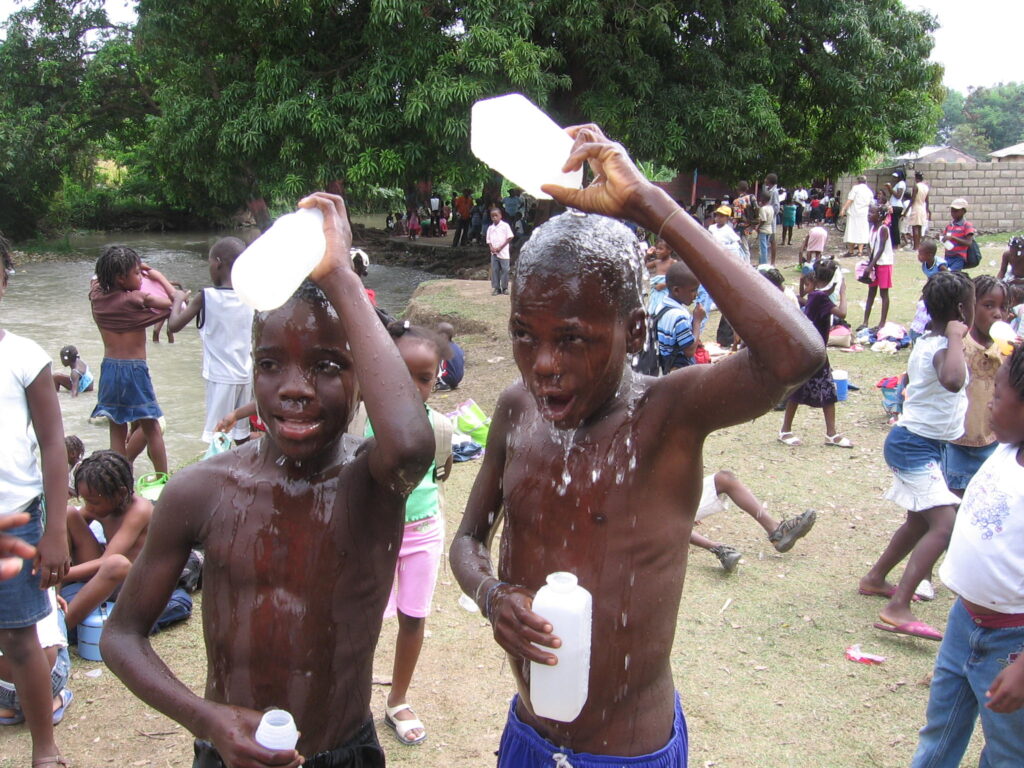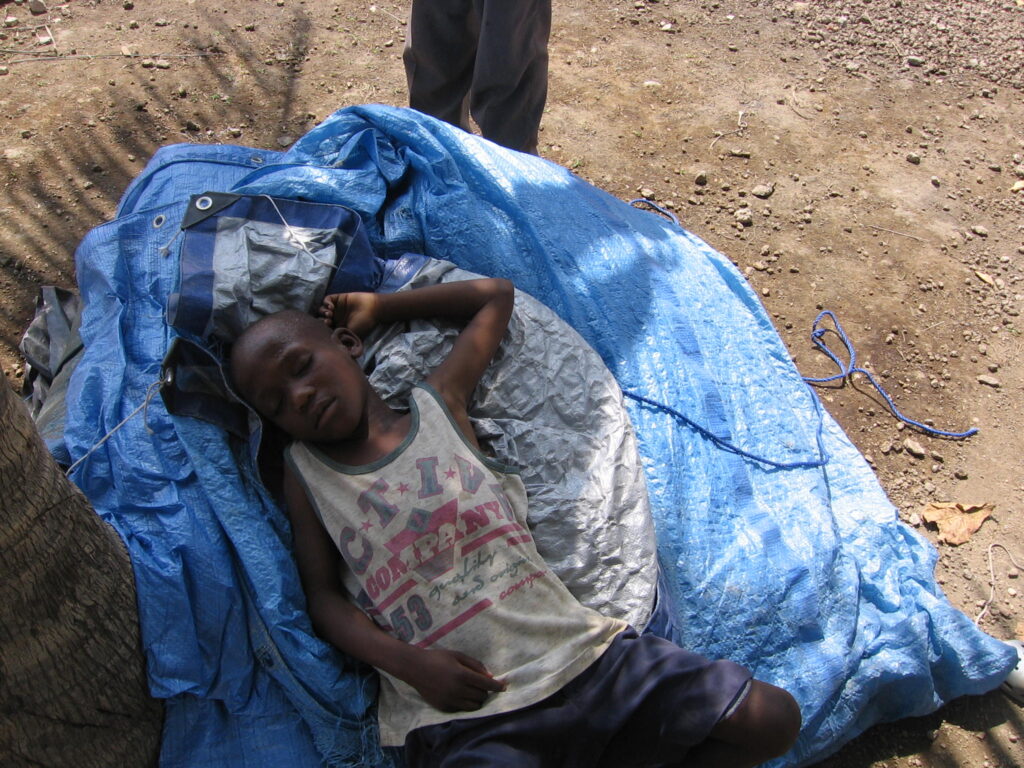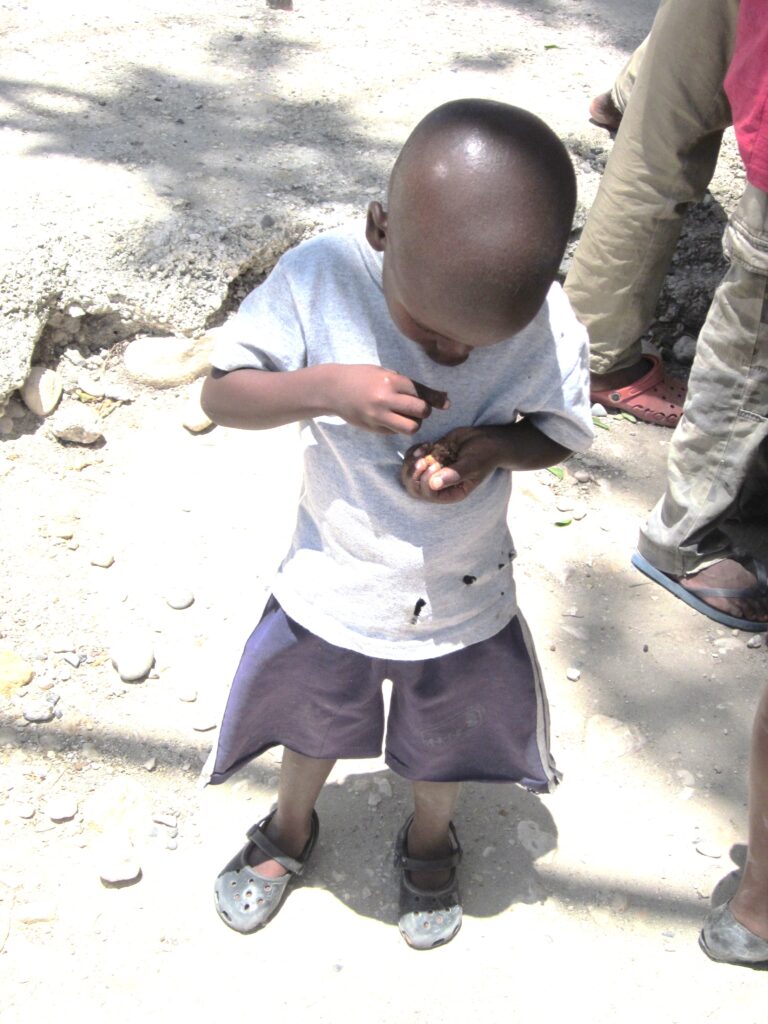The family of the late Jane Corbett, from St. Louis, MO, along with her friends, have formed their own foundation of Melissa’s Hope through the help and guidance of KareDrew.
Community

Support for Melissa’s Hope Orphanage for developmentally and physically disabled children

Melissa’s Hope Orphanage
Pascal Bain, employed as a driver for an orphanage, agreed to stay with his wife Charlette to provide short-term respite care for its young residents. Six weeks was agreed on and its non-Haitian directors left Haiti on vacation. The directors never returned, leaving the Bains with the responsibility of caring for its 25 children and the orphanage facility itself.
That was sometime around 2007. Pascal and Charlette Bain are still there. The age range of the children left in their care was from infancy to early teens. Several of the residents were normally functioning youngsters who had been orphaned. Most though were living with cognitive and/or physical impairments that ranged from mild to extremely severe.
The youngsters in this group are still part of the Bain’s extended family. Some of them have passed on and new ones arrived to make their home in this loving place on the outskirts of Port-au-Prince. Bains really needed help.
KareDrew began to help before we became an official nonprofit. We knew that the Bains and these children really needed help. We all reached out and were able to raise funds to purchase a used truck, assist with rent, fund the rewiring of the building, build a ramp allowing easier transport of wheelchairs to the outdoors, and sometimes simply an ice cream and cake party.
Many guests of Matthew 25 House also came to know the children of Melissa’s Hope. This was especially true for medical professionals because we sometimes got calls when one of the youngsters was ill.
Also assisting these children before they were left in the care of the Bains were Jane Corbette and her family and friends. They had for a long while been funding the transport of children from Haiti to the United States for medical treatment. The Corbettes wanted to do more and asked KareDrew to formally handle the donations that came through their hands for Melissa’s Hope.
We partnered in this effort. KareDrew continues to directly assist Pascal, sometimes through donations that we receive with the special request to assist a child with a handicap, or simply because they had always contributed through us.
Several years ago, our friends from St. Louis, Missouri formed the Melissa’s Hope Foundation, taking over the major financial responsibility for the well-being of Melissa’s Hope.
In the effort of Melissa’s Hope, we who became KareDrew and those who formed Melissa’s Hope Foundation began at the same time, but the effort, the work, and the responsibility were entirely Haitian.

One-Time Assistance
Before founding KareDrew, five of its board members had been assisting people in Haiti for more than 30 years. Their efforts throughout that time were boosts to Haitian initiatives located in various parts of the country. They joined Sr. Mary, Ricardo, and Tey to continue what had over the years included start-up assistance for initiatives including:
Funding for chicken coops and water flow improvements in two villages
Partial funding for medical and dental equipment and supplies, eye exams and glasses, wheelchairs, leg braces, hearing aids, daycare for disabled children, and respite for their parents.
Helping toward road and home repairs
Providing school supplies, books for libraries, shoes for children, and boots for farmers.
Mostly they talked wherever they could to whomever would listen – listen to the people of Haiti. They know what they need.
The assistance KareDrew provides toward the education of the 64 children is due to the cooperation among the parents and the 26 schools involved. These families who asked for our help live in the same neighborhood. The political turmoil and gang violence have restricted movement throughout the country. No one wants to be seen entering a bank which makes receiving financial help risky. Parents are aware that gangs attempt to recruit idle young people.
Haitian homes are quite small – a couple of rooms, an open porch, and an outdoor kitchen. In normal times most of life is lived outdoors. Like parents everywhere, Haitians want an education for their children. This current threat now makes having children safely in school a family imperative.
Their community solution was to contact the schools and arrange for tuition to be paid directly to each one at random times. Hence, the funds are never in the hands of any family, eliminating the risk of going to the bank.
